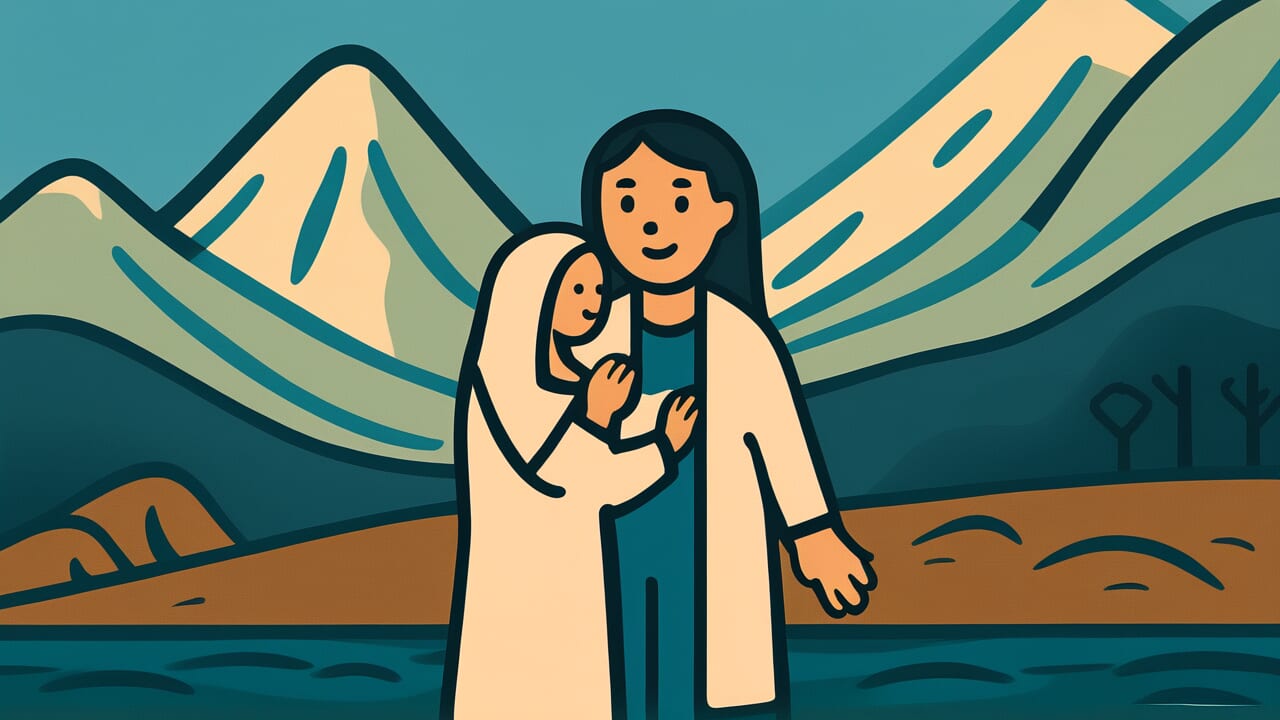How to Read “A father’s kindness is higher than the mountains, a mother’s kindness is deeper than the sea”
Chichi no on wa yama yori mo takaku haha no on wa umi yori mo fukashi
Meaning of “A father’s kindness is higher than the mountains, a mother’s kindness is deeper than the sea”
This proverb means that the kindness of parents is greater than the largest things in nature.
No matter how high the mountains or how deep the ocean, they cannot match the kindness parents give their children.
Parents give birth to their children, raise them, protect them, and teach them. Sometimes they even sacrifice themselves for their children’s happiness.
This kindness is so great it cannot be measured. Words cannot fully express it.
The proverb compares parental kindness to nature’s grandeur. This helps people truly feel how immense that kindness is.
People still use this saying today when expressing gratitude to parents. It’s also used when teaching the importance of honoring one’s parents.
Many people truly understand this proverb’s meaning only after becoming parents themselves. That’s when they realize how much their own parents struggled and loved them.
Origin and Etymology
The exact origin of this proverb is unclear. However, it likely comes from Buddhist teachings about gratitude to parents.
Buddhist scriptures contain many teachings about the virtue of parental kindness. In Japan, texts like the “Sutra on the Profundity of Parental Kindness” have been widely read since ancient times.
The proverb uses “mountains” and “oceans” as metaphors. These are the most magnificent things in nature.
Mountains symbolize height, while oceans symbolize depth. What’s interesting is how the proverb assigns these qualities.
A father’s kindness is expressed through “height.” A mother’s kindness is expressed through “depth.”
This isn’t just poetic language. Some scholars say it represents the different natures of fatherhood and motherhood.
A father’s kindness is more visible, like social protection that towers high. A mother’s kindness is like daily tender care.
It’s less visible but soaks deeply into the heart.
During the Edo period, similar expressions appeared in moral instruction books and temple school materials. This suggests the idea was widespread among common people.
Confucian philosophy also influenced this proverb strongly. Confucianism considers honoring parents the most important virtue.
Usage Examples
- Only after becoming a parent myself did I understand the weight of the saying “A father’s kindness is higher than the mountains, a mother’s kindness is deeper than the sea”
- No amount of gratitude can fully repay parental kindness, which truly shows that “A father’s kindness is higher than the mountains, a mother’s kindness is deeper than the sea”
Universal Wisdom
This proverb has been passed down because it expresses a fundamental human emotion. It captures the universal conflict between “the debt we feel for kindness received” and “the reality that we can never fully repay it.”
Everyone is born receiving benefits from their parents, regardless of their own will. Food, shelter, education, love, and life itself.
Children receive these things unconditionally, before they can offer anything in return. This feeling of “unpayable debt” leaves a deep impression on the human heart.
What’s interesting is that this proverb describes parental kindness as “immeasurable.” Mountain heights and ocean depths can theoretically be measured.
But by saying parental kindness is even greater, the proverb actually conveys a truth. Some things “cannot be measured” or “cannot be compared.”
Humans instinctively want to repay kindness they receive. But parental kindness alone can never be fully repaid, no matter how much we try.
This “impossibility of full repayment” may be the essence of parent-child relationships. It may also be the source of human humility.
Our ancestors believed that recognizing this unpayable debt was the first step in growing as a person.
When AI Hears This
Mountain height can be measured with the same number by anyone. But ocean depth varies completely by location.
This physical difference cleverly expresses how easily different types of kindness are “evaluated.”
Potential energy is calculated as “mass × gravity × height.” In other words, a father’s kindness can be clearly quantified from society’s viewpoint.
It becomes visible as concrete achievements like income, status, and home purchases.
Meanwhile, a mother’s kindness, equivalent to ocean depth, resembles entropy in thermodynamics. Entropy measures how much energy has scattered and become difficult to measure.
A mother’s labor—cooking, laundry, worry, attentiveness—dissolves into every aspect of daily life. It can no longer be measured individually.
What’s more interesting is this: potential energy is recognized dramatically through “falling.” But heat diffusion is quiet and goes unnoticed.
If a father loses his job, the whole family feels the shock immediately. But if a mother doesn’t do housework for one day, no one is immediately troubled.
However, if the “heat” of a mother’s kindness stops, the entire life system gradually breaks down.
This proverb uses physics metaphors to unconsciously reveal a structural bias. Society evaluates “height” but overlooks “depth.”
Lessons for Today
This proverb teaches modern people the importance of noticing miracles within the “ordinary.” We tend to take many things for granted in daily life.
Daily meals, a warm home, words of encouragement. But these are all crystals of someone’s effort and love.
Being aware of parental kindness actually becomes a key that opens the door to gratitude for all of life.
People who can feel gratitude toward their parents also develop sensitivity. They notice friends’ kindness, society’s support, and nature’s blessings.
A grateful heart makes people humble and simultaneously strong.
In modern society, parent-child relationships have diversified. Not all relationships are ideal.
Still, the very fact that you exist here and now proves someone supported you. No parent is perfect.
But if you can focus on the imperfect yet wholehearted efforts they made, your own heart becomes richer.
And when you someday support someone else, that experience will give you strength. Repaying kindness may be difficult.
But you can pass kindness forward to the next generation.



Comments